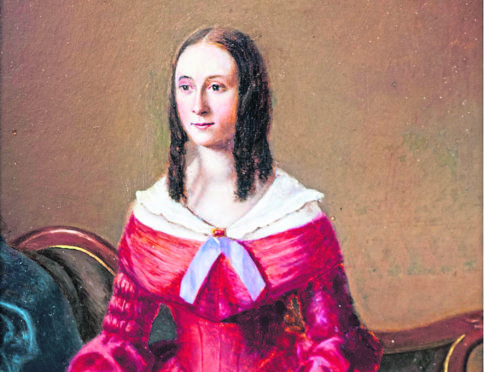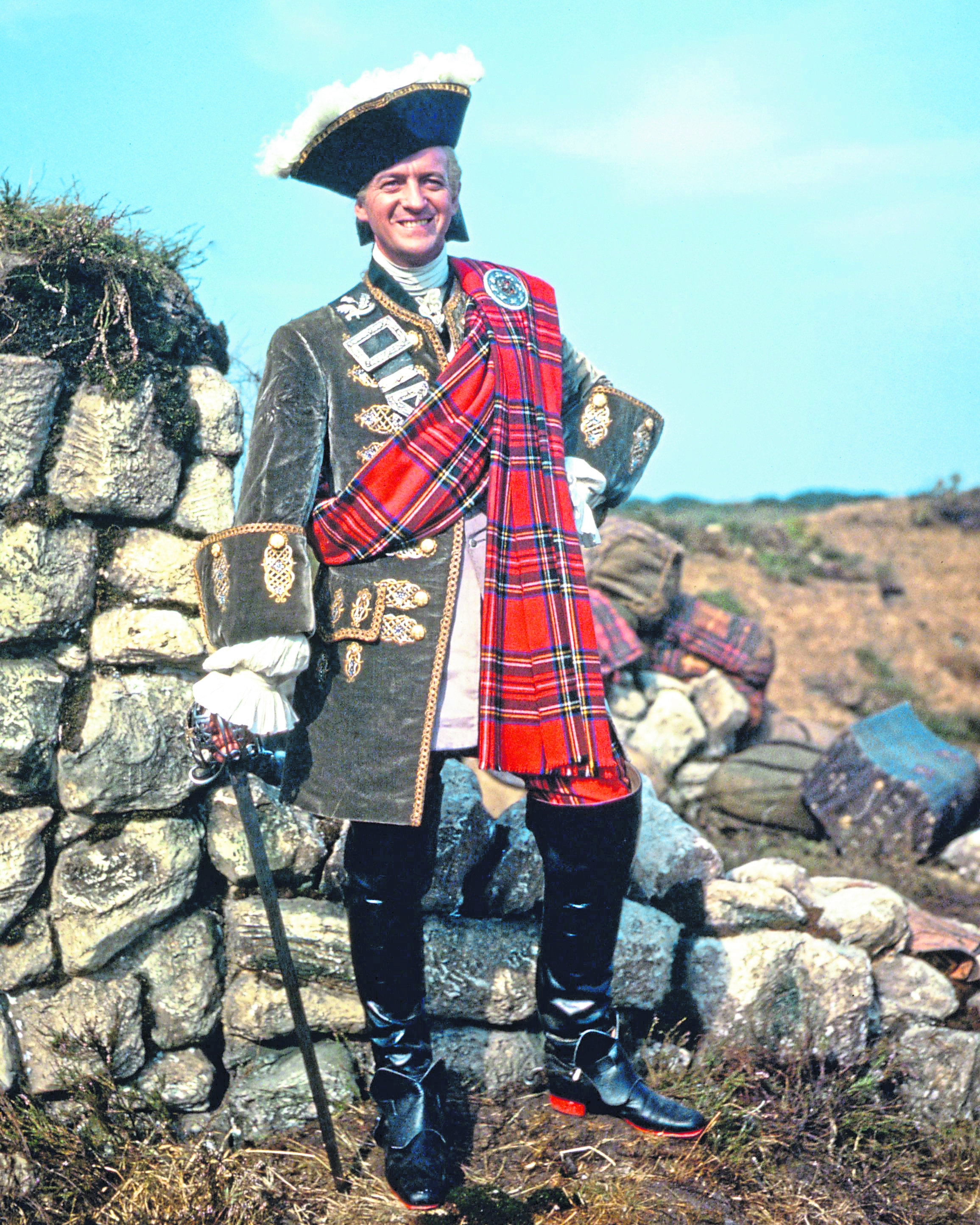
Her songs have been sung around Scotland for hundreds of years. But, while her lyrics of loss, romance and rebellion have become part of the country’s cultural DNA, Carolina Oliphant is less than a household name.
Lady Nairne, as she became, or Mrs Bogan of Bogan, as she sometimes disguised herself, wrote some of Scotland’s most beloved traditional songs.
Charlie Is My Darling, Will Ye No’ Come Back Again and Wi’ A Hundred Pipers are just a few of the enduring songs from Carolina, a contemporary of Robert Burns.
Yet while Rabbie is world famous, little is known or remembered about Carolina and her songs. Much of that is down to the extraordinary lengths she went to conceal her identity as a songwriter – not even her husband knew.
Now a book by one of her descendants aims to give Carolina her long overdue place in history. Former BBC music producer and traditional musician Freeland Barbour has gone through his family papers to piece together the full story of this prolific and complex musician.
“It’s difficult to know for sure why she chose to never admit these were her songs,” said Freeland.
“She came from a very strict Episcopalian household, with the family taking its religious vows extremely seriously, and I suspect that was part of the reason.
“Self-effacement and modesty were seen as great virtues. They were unbelievably staunch and were so serious about their beliefs in a way that is hard for us to understand these days.
“Once she was married, I can understand why she wished to remain anonymous. She was writing Jacobite songs and her husband was a senior figure in the military hierarchy.
“Of course, it wasn’t so uncommon to remain anonymous in those days. The Floo’ers O’ The Forest had been printed for 30 years before its author, Jean Elliot, was revealed, and Walter Scott published his early Waverley novels anonymously. Some women close to her did know Carolina’s secret.”
So determined was she not to publicly reveal her identity, that when her Edinburgh publisher asked to meet with the writer known only as Mrs Bogan of Bogan, BB or SM (for Scottish Minstrel), she dressed up as an elderly lady from the countryside and told him she collected the songs from rural folk and was not the author.
“She did occasionally do this, which shows the liveliness of her,” said Freeland.
“Anne Lorne Gillies even performed a little show about Carolina in the Scottish Parliament not long after it opened and used this older lady character as the main part.”
Carolina was born in Gask, Perthshire, into a Jacobite family.
Her father and maternal grandfather fought on the side of the Jacobites in 1745 and the family was exiled to France for 19 years, Carolina’s parents only returning two years before her birth.
“When her father and grandfather returned to Scotland, they hadn’t been officially pardoned so had to lay low,” explained Freeland.
“No one would bother them so long as they didn’t make a nuisance, which meant life was quite insular as she grew up, so that would also contribute to her character.”
Despite being just seven years Robert Burns’ junior, and writing songs throughout the same period as he did, the two would never have crossed paths.
“Her work was only published in the 1820s, long after he was gone. Prior to that, her songs entered the public domain through being sung – people knew the songs without knowing the author. She was quite fortunate to have a link to the Jacobites, which Burns didn’t have. For poetry in Scotland, I think only Burns can exceed her.
“At least a dozen of her songs will live on for as long as these things tend to last.
“Although she never says so in any of her writings, she would have known all about Burns.”
Two years after marrying William Murray Nairne, the couple had their only son, also named William Murray Nairne. He was a sickly child, and after William Sr died, Carolina moved to a warmer climate to help her son, but he died in 1837, aged just 29.
“After his death, her final eight years were listless,” said Freeland. “She travelled all the time and only wrote one or two things. In one of her diaries she said she wanted to get to the afterlife to be with her husband and son.”
It was only a year after Carolina’s death that her identity as the songs’ author was revealed.
“It’s interesting that her sister revealed it so soon after her death. It would have come out eventually, but I think Carolina would have been quietly irritated about it.
“If no one knew who wrote The Land O’ The Leal, I don’t think it would have bothered her one bit.”
While sifting through the archives, Freeland was able to build a character of the person his great-great-great-great-great aunt was. She was a true one-off and I don’t think she realised quite how good a writer she was.
“She was clearly the life and soul of the party when she was in her teens. Everyone seemed to like her and she seemed a genuinely lovely lady. She would visit with a lot of people, giving out her money along the way.”
Growing up in a musical household, Freeland was always aware of Carolina and a copy of her songbook lay at the piano in the family home, but it was only in the past 20 years or so he realised she wasn’t as well-known as her achievements deserved.
“I thought it would be nice to put her back on the map, but it’s only in the last few years I’ve had time to work on it. It’s been more than 100 years since a biography on her was last published, so I felt it was time to bring her up to date and give her another crack of the whip.
“I’m proud the songs have stood the test of time. She’s a great example of someone with enormous talent but no ego, and that’s something to be proud of.
“She had an extraordinary gift for pithy Scots writing. She didn’t write any music, even though she could play very well, but she had a musical ear as she knew how to pitch lyrics to the rhythm of music.
“Maybe part of the pat on the back should also go to the deep well of Scottish vernacular music which, for a nation of this size, is pretty amazing.
“We don’t know when these came from or who wrote much of these wonderful melodies that people are still singing hundreds of years later.”
He added: “Her story is a life-affirming tale. They are a family to be proud of and we certainly are.”

Enjoy the convenience of having The Sunday Post delivered as a digital ePaper straight to your smartphone, tablet or computer.
Subscribe for only £5.49 a month and enjoy all the benefits of the printed paper as a digital replica.
Subscribe © Silver Screen Collective
© Silver Screen Collective